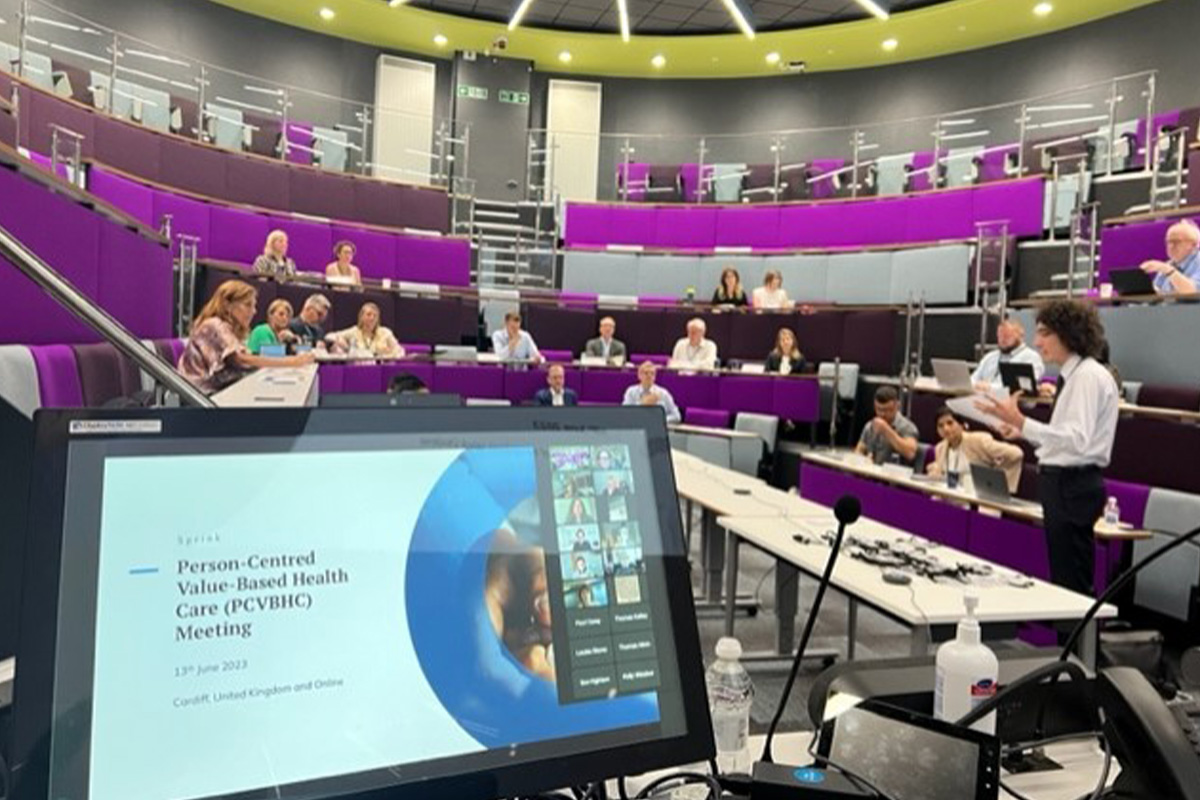Nicola Bedlington. Senior Advisor Patients & Policy.
Between 2006 to 2019, I led the secretariat of the European Patients’ Forum, an umbrella organisation convening over 75 European national patient organisations. During this time, we looked at the role of patients in informing the emerging concepts of Person-Centred Health Care and Value-Based Health Care. In our contribution to a report published in 2019 by the European Commission’s Expert Panel on effective ways of investing in Health (EXPH)1 we underlined several ways to enhance the patients’ perspective.
Towards co-creation of health and care services
First, we called for co-creation with the patient community to establish a framework for meaningful patient and public involvement in health systems and service design. This framework was central to ensuring patients are embedded at every stage, from defining evidence requirements to policy discussions and decision-making. We also called for a comprehensive strategy to implement empowering practice and Person-Centred Care. This included recommendations for improving health literacy, introducing shared decision-making and better self-management support, designing user-driven technologies, and effective ways of delivering integrated health and social care to meet patients’ holistic needs. Another critical dimension was advocating for increased clinical research and data transparency to support fully informed, shared decision-making between patients and clinicians. The community also felt we needed to encourage research and innovation that meets patients’ and societies’ needs equitably, through Public Private Partnerships involving patients. The new Innovative Health Initiative provides fertile ground to develop this.2
Increasingly, the European patient community is looking for patients to define patient reported outcome measures (PROMs) and experience measures (PREMs) that truly reflect their priorities and strategies to implement these. EPF‘s collaborative work with the OECD PaRIS initiative3 reflects this.
There is now a strong commitment across all health stakeholders to embed meaningful patient engagement in the lifecycle of medicines and technologies. This spans research priorities, clinical trial design, dialogue with regulators and health technology assessment (HTA) experts, approval of drugs and devices, pharmacovigilance and real-world evidence analysis. At each stage of innovation, the overarching goal is to reflect the need of patients and lead to better outcomes. The Patient Focused Medicines Development Initiative (PFMD)4 and the European Patient Academy on Therapeutic Innovation are pioneers in this area.
We also need to involve patients in the training and continuous professional development of all stakeholders working towards Person-Centred Health Care, Value-Based Health Care and equitable resource allocation to ensure an understanding of what really matters to patients. And finally, we need to promote effective patient and public engagement and dialogue about societal priorities, which should include sustainable investment in health.
Moving forwards towards PCVBHC
Much of this previous work resonates with the aims of the Global Centre for PCVBHC. The centre is currently focusing on answering the research question: “How can we enable people receiving care and their clinicians to collaborate in a shared goal-setting and decision-making process to align care to outcome goals and care preferences?” This research output will build on the vital knowledge needed to further our understanding of how to implement PCVBHC and address patients’ needs.
The Global Centre for PCVBHC is also supporting its member organisations to create strategies to empower the practice of Person-Centred Care, including understanding patients’ goals and care preferences, shared decision-making and using standardised outcomes measures in the context of personal goals and preferences. These efforts should contribute to increased data transparency on outcomes and costs and ensure people receiving care are involved in everything we do.
To achieve successful and systematic implementation of PCVBHC, and to help organisations respond to some of the challenges above, the Global Centre for PCVBHC has developed an online training programme6 to introduce the knowledge base and develop the skills necessary to enable the implementation of PCVBHC.
I am encouraged and excited to witness a strong patient voice at the heart of our work at the Global Centre for PCVBHC. We are collaborating closely with patient organisations to make the recommendations of the European Patients’ Forum a reality and we are looking forward to increasing this work in the following months. It is a complex task requiring education and alignment of different stakeholders; however, I am confident we have a strong foundation and commitment to make it happen.
For more information about the PCVBHC training programme, please visit: https://www.sprink.co.uk/training-for-person-centred-value-based-health-care/ or contact Andrea Srur, Associate Director, Global Centre for PCVBHC: a.srur@sprink.co.uk.
You can also download the 2021 Person-Centred Value-Based Health Care Report here: https://www.sprink.co.uk/pcvbhc-report/
1 https://health.ec.europa.eu/system/files/2019-11/024_defining-value-vbhc_en_0.pdf
2 https://www.ihi.europa.eu/
3 https://www.oecd.org/health/paris/ r
4 https://patientfocusedmedicine.org/
5 https://eupati.eu/
6 https://www.sprink.co.uk/training-for-person-centred-value-based-health-care/



